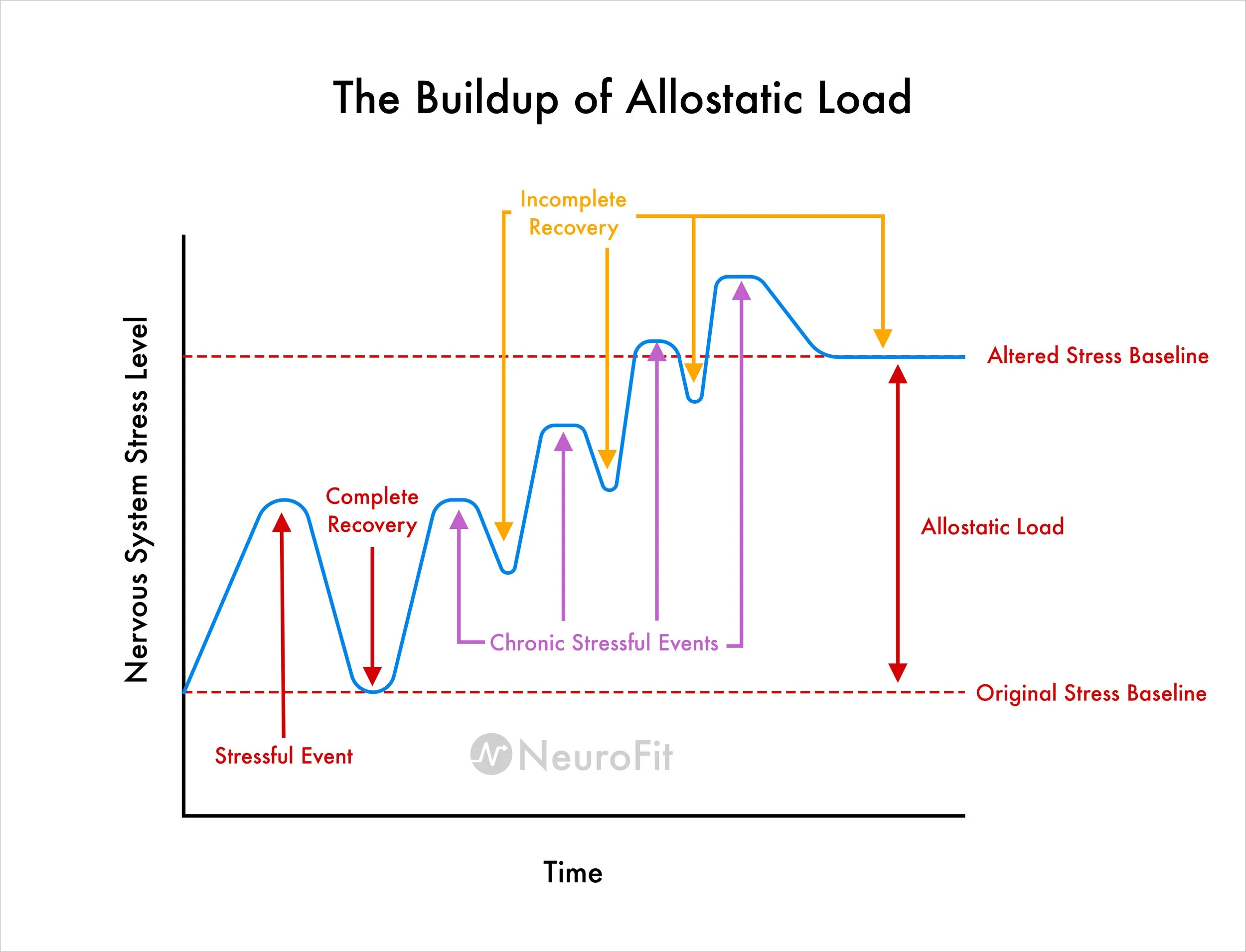Somatic Exercise: A Healthy Way to Release Anger
IMAGE: NEUROFIT
Ever felt like a volcano about to erupt? A seething, boiling mass of emotions threatening to explode any second?
We all have. Anger is an intense emotion we're no strangers to. But when anger issues start clouding our judgment and affecting our relationships, that's when you can benefit from somatic exercises to release anger.
Interested in knowing how somatic exercises can aid in releasing pent-up frustration or rage? Or perhaps the role relaxation techniques play in anger management?
You're on the right track! Stay tuned as we dive deeper into these solutions... and more!
Understanding Anger and Its Impact on Mental Health
Anger is a normal emotion, just like joy or sadness, but when anger becomes persistent and uncontrolled, it can lead to significant problems both mentally and physically.
The Dangers of Unmanaged Anger
Uncontrolled anger isn't just about feeling mad all the time; it has real consequences for your health too. Persistent feelings of rage can lead to serious issues such as cardiovascular issues, which is why managing these intense emotions is so important.
Apart from hurting others' feelings with harsh words or actions, suppressed anger can also cause negative thoughts that are harmful to one's own mental well-being.
Frequent bouts of uncontrolled anger could potentially result in chronic high blood pressure - an issue highlighted by research from the Mayo Clinic. When you're always fired up, your heart works harder than usual causing strain over time leading to higher risks for cardiovascular disease.
If you find yourself dealing with this kind of chronic anger regularly, remember: an alternative route is available. You don't need a punching bag or physical activity alone; to recognize triggers along with proper breathing techniques may be enough to start regaining control over how events affect you emotionally.
Signs You’re Holding Onto Unresolved or Repressed Anger
Our bodies are wise and can give us powerful clues when anger remains repressed or unexpressed. Here are 10 signs that may indicate someone is holding onto unresolved anger in their body:
Frequent Headaches: Chronic tension headaches are often a sign that anger is being repressed. Muscle tension builds up in the neck and shoulders, causing painful headaches.
Jaw Clenching and Teeth Grinding: Grinding of the teeth, known as bruxism, or constant jaw clenching can be physical manifestations of anger that has not been released.
Digestive Issues: Unresolved anger can manifest as digestive problems, such as irritable bowel syndrome (IBS), indigestion, or acid reflux. The gut is highly connected to our emotional state, and repressed anger can impact our digestive system.
Chronic Muscle Tension: Ongoing muscular tightness, especially in the neck, shoulders, and back, can be related to repressed anger. The body holds onto tension, trying to protect itself from potential threats.
Insomnia or Disrupted Sleep: Difficulty falling asleep or staying asleep can be a sign of unsettled anger. The body's fight-or-flight response can be activated, preventing individuals from achieving restorative sleep.
Irritability and Impatience: When anger is repressed, it tends to seep out in other areas of life. Someone holding onto unresolved anger may find themselves easily annoyed, irritable, or impatient with others.
Passive-Aggressive Behavior: Unexpressed anger can manifest as passive-aggressive behavior. Subtle jabs, sarcasm, or intentionally withholding information can be signs of anger that has not been acknowledged or addressed.
Chronic Fatigue: Repressed anger can deplete our energy levels, leaving us feeling constantly fatigued and drained. The emotional burden of unexpressed anger can be exhausting to carry.
Intense Negative Emotions: A person harboring unresolved anger may experience regular bouts of sadness, anxiety, or depression. These emotions can be a result of the internal turmoil caused by unexpressed anger.
Physical Ailments without Medical Explanation: Sometimes, individuals with repressed anger may experience physical symptoms without any discernible medical cause. These can include unexplained aches, pains, or mysterious ailments.
Somatic Exercise - A Powerful Tool for Releasing Anger
Somatic exercises, which involve mindful body movements, can help in regulating emotions by maintaining a balanced nervous system. When we experience anger or rage, our bodies often tense up as part of a natural fight-or-flight response. Somatic exercises encourage us to focus on these physical sensations and gradually release them through controlled movement.
Examples of Somatic Exercises VIA NEUROFIT APP:
BREATHING EXERCISES
Deep breathing helps calm the nervous system and reduce feelings of anger.
PROGRESSIVE MUSCLE RELAXATION
Progressive muscle relaxation (PMR) exercises can be effective at reducing frustration and tension.
The Power Of Physical Release
If your rage feels too powerful for calming techniques alone, try safely releasing it physically first before moving onto more soothing practices. Throwing something harmless - such as balled-up socks against a blank wall - provides an outlet without causing harm or damage.
Powerful high-energy exercises from NEUROFIT App that can assist with this include:
Sacred Rage
Tree Shaking
Butterfly
Ecstatic Dance
The Importance of Regulating Emotions and Maintaining a Balanced Nervous System
It's not unusual to feel angry. But when that anger becomes a frequent visitor, it can wreak havoc on your mental health and nervous system. This is where emotional regulation steps in.
The Role of Relaxation Techniques in Lowering Intensity Anger
Mind-body workouts, like the ones listed above, aim to reconnect you with the physical sensations often lost during moments of high stress or anxiety - think of them as taking your nervous system for a much-needed spa day.
By focusing on controlled movements and breathwork and giving yourself some quiet time, these practices activate our parasympathetic nervous system (the body’s natural chill-out mechanism). They act like an internal dimmer switch dialing down the intensity level from red-hot rage to manageable annoyance. Studies have shown these methods are successful in managing lower-intensity anger effectively.
They also help to reduce the buildup of Allostatic Load - built up stress and tension in the nervous system and improve your resilience to stress in the long-term.
Beyond just providing temporary relief though, consistent use helps build resilience over time—a buffer zone against future outbursts or episodes—ultimately leading us towards healthier relationships with ourselves and others around us. Recent research suggests such ongoing commitment leads to lasting changes within our brain itself.
Key Takeaway:
What to do when you feel like your anger's taking over? Dial down the rage with relaxation techniques. Somatic exercises, breathwork & tools inside the NEUROFIT App can help manage heavy emotions. More than a quick fix - they build resilience and healthier relationships.
FAQs in Relation to Release Anger
How do you release anger instantly?
Complete a somatic exercise via NEUROFIT App to release pent up anger in just 2 to 3 minutes.
How do you release trapped anger?
To free pent-up fury, try high-energy exercises like boxing or sprinting. Channeling feelings into artistic expression like painting, music or dance can also work wonders. Somatic exercises, such as those featured in the NEUROFIT App can assist also.
How to get rid of anger?
Somatic exercise, relaxation techniques, verbalizing the feeling even to an empty chair - these are some methods that aid in dissipating anger. Regulating emotions and tracking your nervous system state (through the NEUROFIT app) is another simple and effective strategy.
Conclusion
Releasing anger doesn't have to feel like defusing a bomb. We've discussed how you can take control, with strategies from understanding the risks of unmanaged anger to employing somatic exercises.
The NEUROFIT app could be another great tool in managing those moments when you feel overwhelmed by anger and need help restoring balance.
In essence, knowing how to effectively release anger leads not only towards healthier relationships but also improved mental health. Keep these tips at hand for whenever things get heated!
Start your 6-week nervous system reset with the NEUROFIT App.




